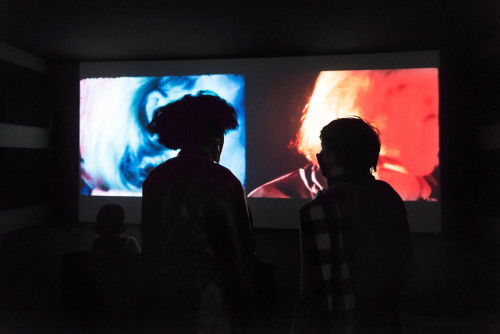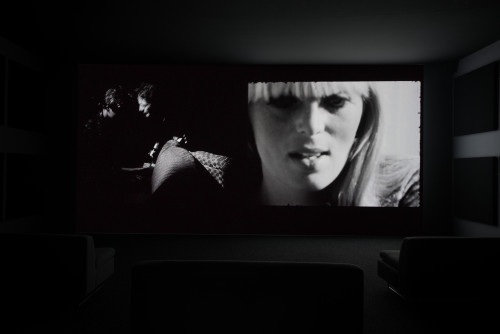Premiering in 1966, Warhol’s The Chelsea Girls set the stage for today’s reality TV, giv
Premiering in 1966, Warhol’s The Chelsea Girls set the stage for today’s reality TV, giving audiences an unscripted glimpse into the lives of New York’s underground. In passages of intimacy, drug use, and performance, certain visual allusions suggest a lingering, lapsed Catholic backdrop. In several scenes, “Pope” Ondine—Robert Olivo, who appeared in several of Warhol’s films—performs a ribald confession ritual. Navigating same-sex desires, drugs, and drinking, Ondine references ashes (a Catholic symbol of repentance) as being “good for your beer,” chides Ingrid Superstar for disrespecting her parents (forbidden by the Ten Commandments), and clarifies he is “not one of God’s messengers” yet says “everywhere is where God is.” Ondine’s play at disreputable priesthood echoes the compassionate actions of Christ, who embraced social outcasts and misfits. In Ondine’s words: “I want to be true to my flock. My flock consists of homosexuals, perverts of any kind, thieves … criminals of any sort … the rejected by society. Okay? That’s who I’m pope for. I’m pope for the few who really care.”The Chelsea Girls is screened twice daily as part of #WarholRevelation. Plan your visit: https://bit.ly/revelationbkm Visitors at Andy Warhol: Revelation. Brooklyn Museum November 19, 2021–June 19, 2022. (Photo: Jonathan Dorado, Brooklyn Museum. Artworks by Andy Warhol © 2021 The Andy Warhol Foundation for the Visual Arts, Inc. / Licensed by Artists Rights Society (ARS), New York. Used with permission of @warholfoundation) #warholfoundation -- source link
Tumblr Blog : brooklynmuseum.tumblr.com
#brooklyn museum#brooklyn#museum#andy warhol

